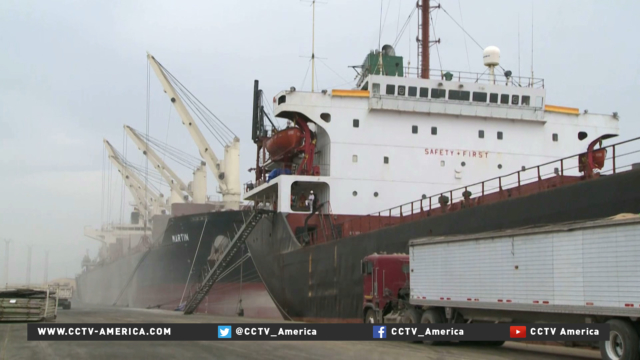The World Bank has reduced its economic growth forecast for Sub-Saharan Africa for this year and 2016 due to the challenges these economies are facing including the impact of Ebola, slower global growth, and lower commodity prices.
CCTV’s correspondent Daniel Ryntjes reported this story from Washington D.C.

Sub-Saharan growth forecasts were slightly downgraded to 4.6 percent for this year and 4.9 percent for 2016 in the World Ban’s Global Economic Prospects (pdf) report.
Behind the numbers, outlook shows both concern and promise.
For example, Nigeria is suffering from falling oil prices and foreign investment risk aversion, as well as worsening security problems with the militant group Boko Haram.
But Nigeria has also successfully diversified its economy away from fossil fuels, helping to maintain growth above 5 percent.
The World Bank said investments in infrastructure and services are key drivers for African growth now. However countries should not rely too heavily on financing their projects through debt.
“Interest rates are going to gradually increase. When they start increasing we will see, in a sense, which countries are ready, which are not ready. This is a good time to get ready for that change,” Ayhan Kose, director of development prospects at World Bank said.
Investments in agriculture are another area for promise, although in West Africa this could be threatened by the spread of the Ebola virus to cities and major transport hubs — though the World Bank is hopeful that this will be avoided.
“The bottom line is that the future of Africa is quite bright. Today Africa needs to show that it can withstand these external shocks, they can manage the economy well,” Kose said.
After a downbeat 2014, the World Bank said there are signs of acceleration in South Africa due to improving labor relations, increasing exports, and reforms in the energy sector.
 CGTN America
CGTN America
